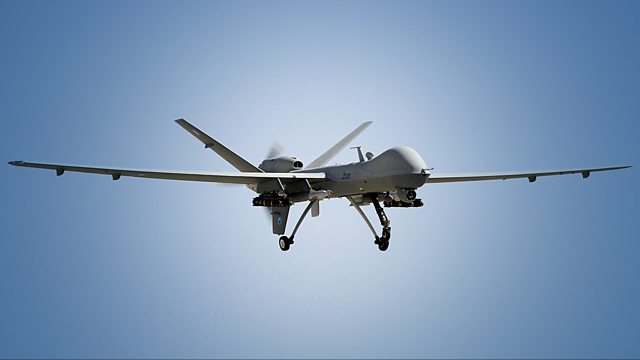The Year of the Drone
Technology is allowing for new levels of remote warfare, but drones remain controversial. Will Robson gets exclusive access to the British military's drone programmes.
Will Robson gets exclusive access to some of the British military's most secretive, sophisticated and controversial drones, and talks to the men and women who operate them. He gets an insider perspective on what it means to fight a war remotely, and finds out how long distant combat affects those at the controls.
In a remote corner of west Wales, in a matt green shipping container, a group of engineers and military officials crowd around a high-tech bank of screens and joysticks. A monitor feeds them live aerial footage of the Carmarthenshire coastline. The image is crisp, they can make out dolphins swimming in the wake of a fishing trawler. They're testing the limits of the British Army's Watchkeeper surveillance drone, one of a new fleet of Unmanned Aerial Systems (UAS) which have an £850m pound price tag.
The British military is a global leader in UAS technology, and Watchkeeper is just one element. As drones become ever more important to the way Britain fights its wars, the Government's Select Defence Committee are demanding more transparency.
While the military have welcomed UAS as a way of reducing costs and casualties, not everyone is convinced. Critics say that drones could bring an age of airborne occupation and dispassionate warfare. They claim that when war can be fought without consequence to the aggressor, violence quickly becomes easier than diplomacy.
Will Robson explores the debate around one of this generation's most divisive military technologies.
Produced by Harry Graham
A Whistledown production for ±«Óãtv Radio 4.
Last on
Broadcasts
- Mon 6 Oct 2014 11:00±«Óãtv Radio 4
- Mon 20 Oct 2014 20:00±«Óãtv Radio 4

